The Pronoun Types of Pronouns Pronouns can be:

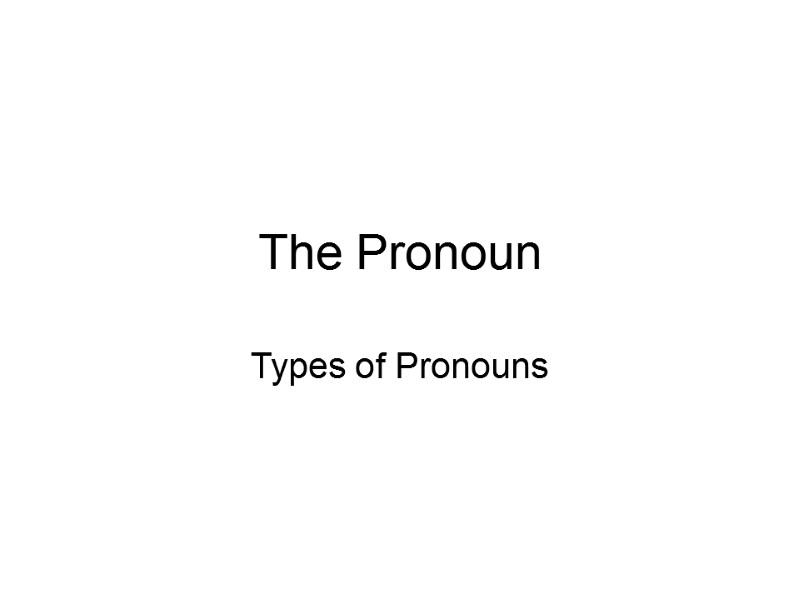
The Pronoun Types of Pronouns
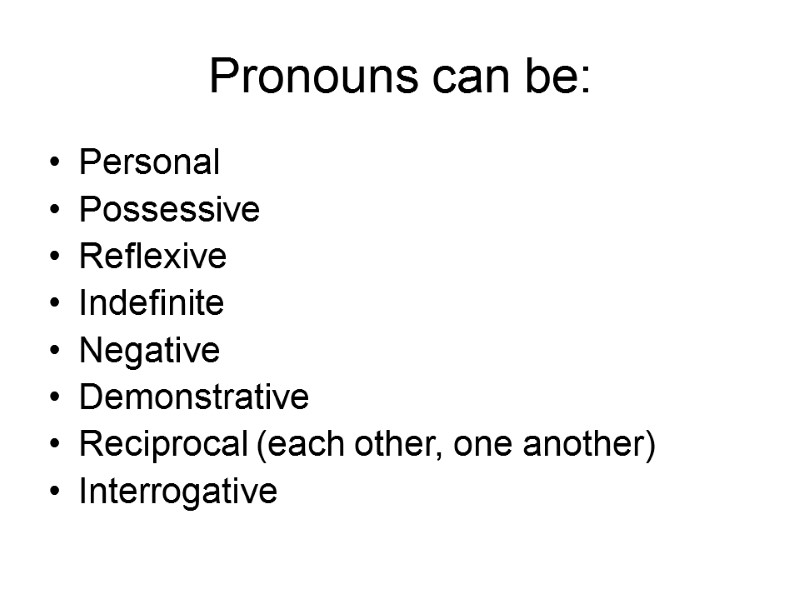
Pronouns can be: Personal Possessive Reflexive Indefinite Negative Demonstrative Reciprocal (each other, one another) Interrogative
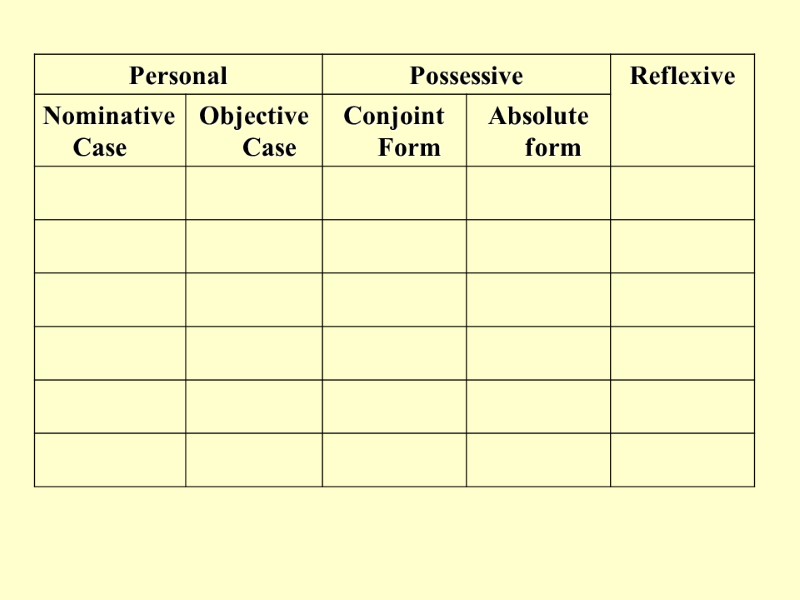
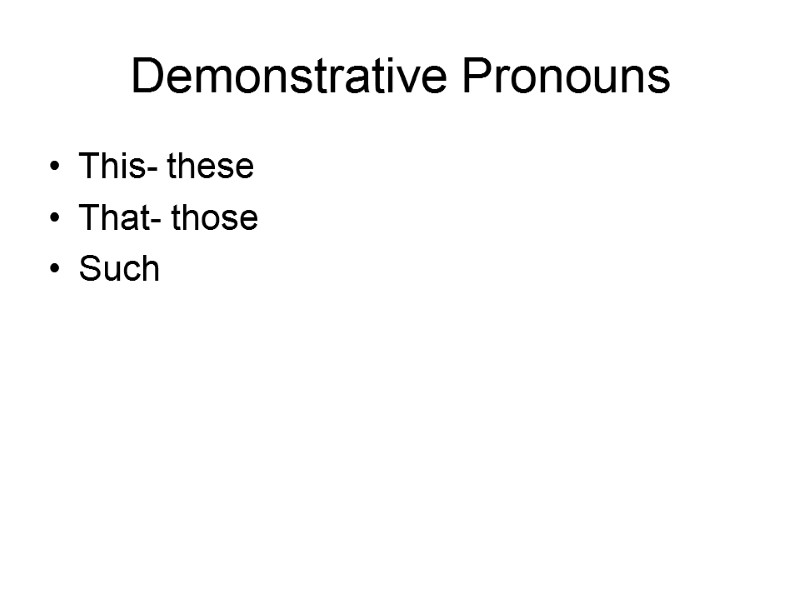
Demonstrative Pronouns This- these That- those Such
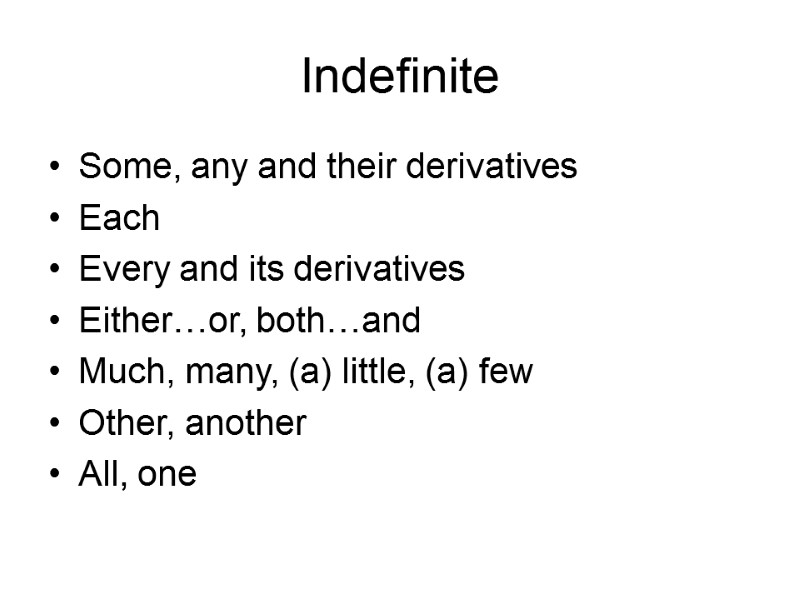
Indefinite Some, any and their derivatives Each Every and its derivatives Either…or, both…and Much, many, (a) little, (a) few Other, another All, one
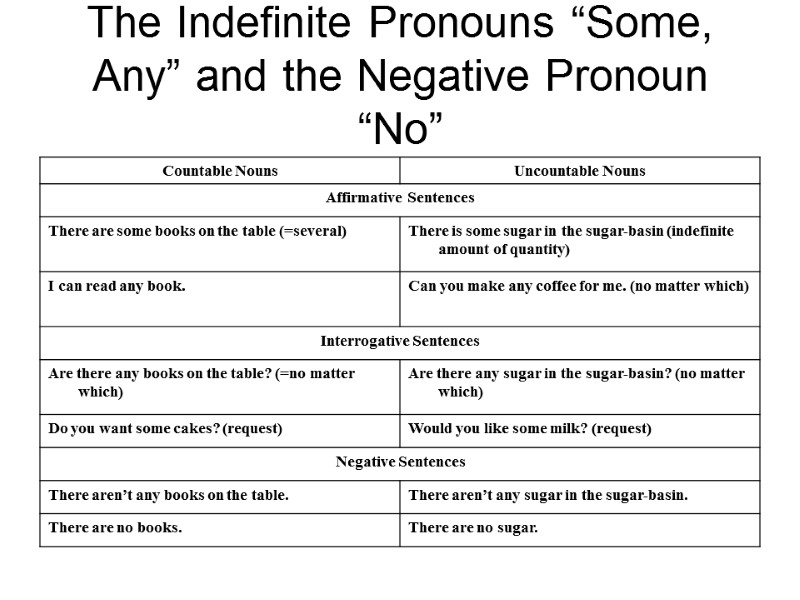
The Indefinite Pronouns “Some, Any” and the Negative Pronoun “No”
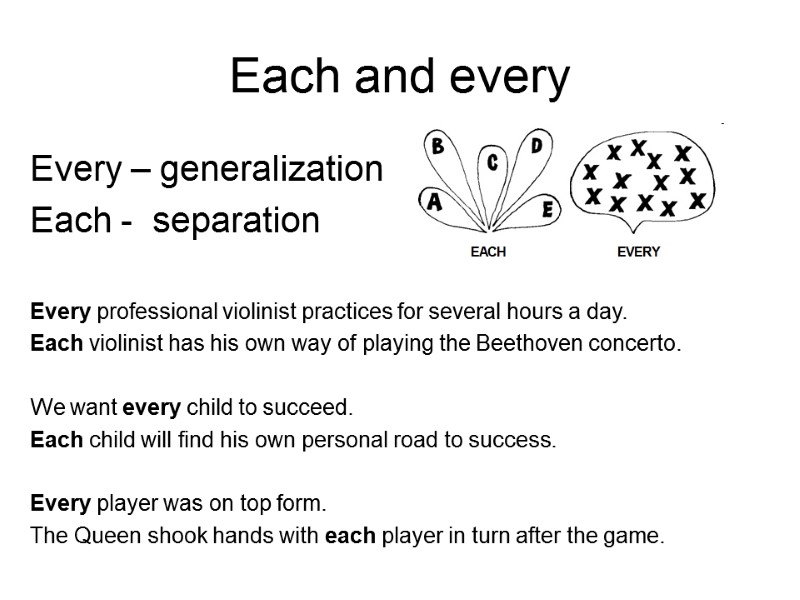
Each and every Every – generalization Each - separation Every professional violinist practices for several hours a day. Each violinist has his own way of playing the Beethoven concerto. We want every child to succeed. Each child will find his own personal road to success. Every player was on top form. The Queen shook hands with each player in turn after the game.
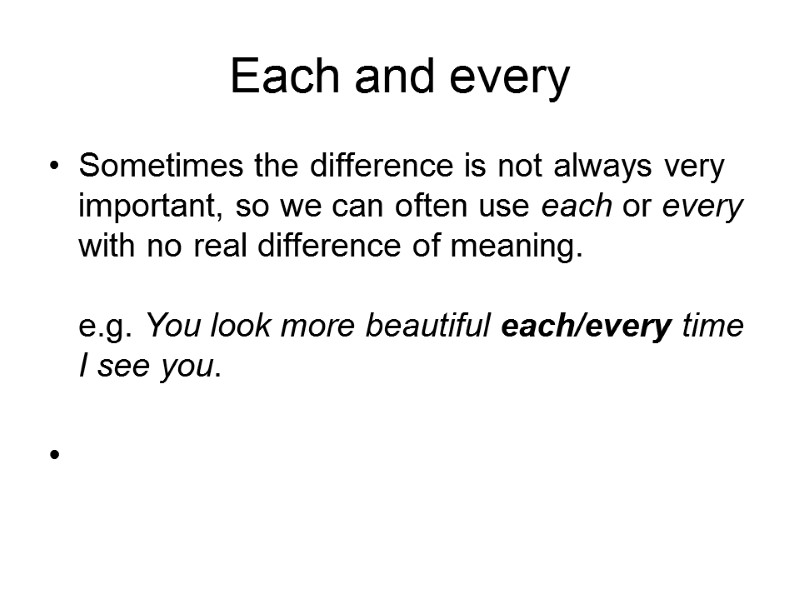
Each and every Sometimes the difference is not always very important, so we can often use each or every with no real difference of meaning. e.g. You look more beautiful each/every time I see you.
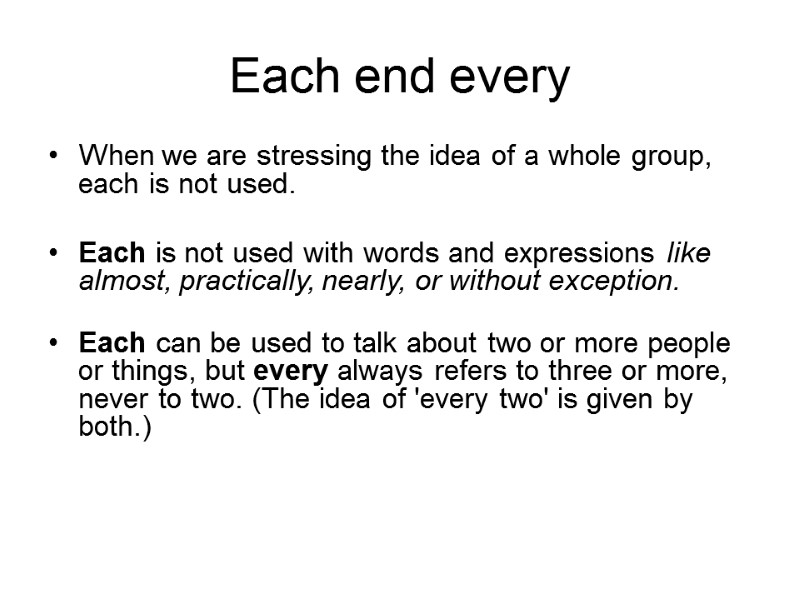
Each end every When we are stressing the idea of a whole group, each is not used. Each is not used with words and expressions like almost, practically, nearly, or without exception. Each can be used to talk about two or more people or things, but every always refers to three or more, never to two. (The idea of 'every two' is given by both.)
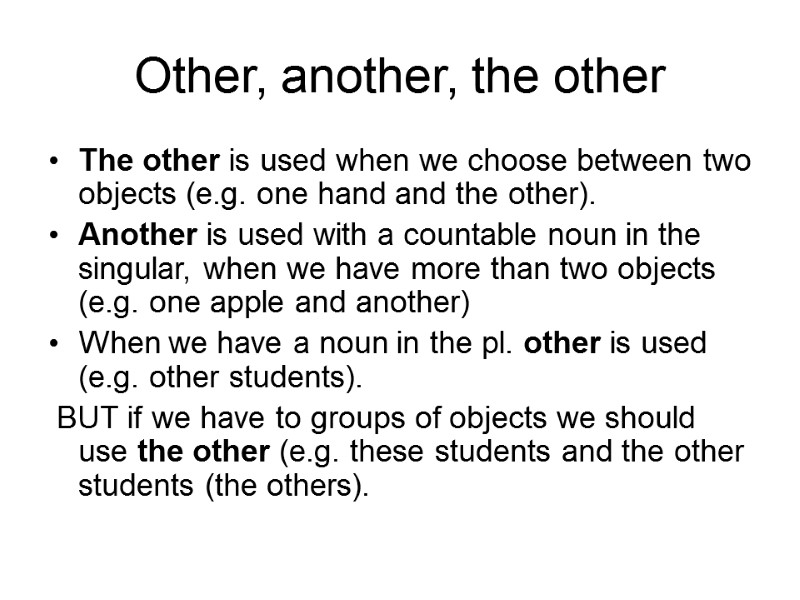
Other, another, the other The other is used when we choose between two objects (e.g. one hand and the other). Another is used with a countable noun in the singular, when we have more than two objects (e.g. one apple and another) When we have a noun in the pl. other is used (e.g. other students). BUT if we have to groups of objects we should use the other (e.g. these students and the other students (the others).
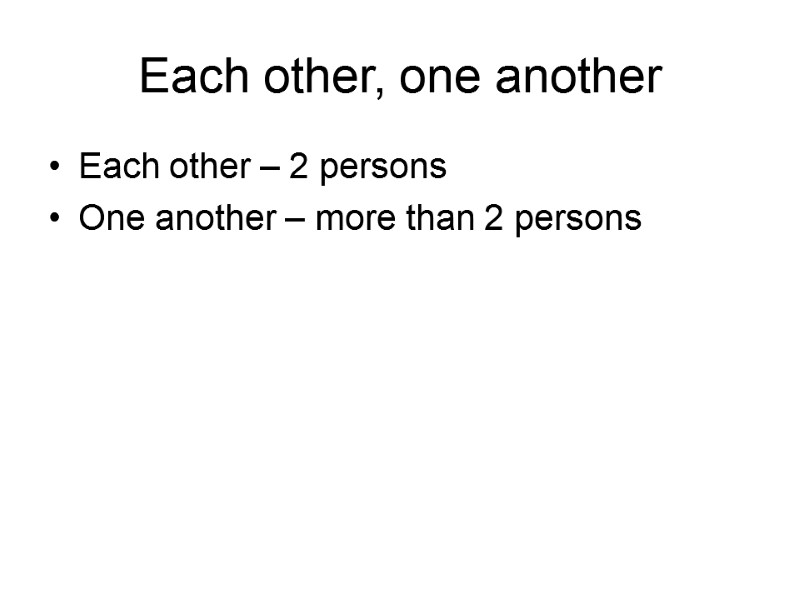
Each other, one another Each other – 2 persons One another – more than 2 persons
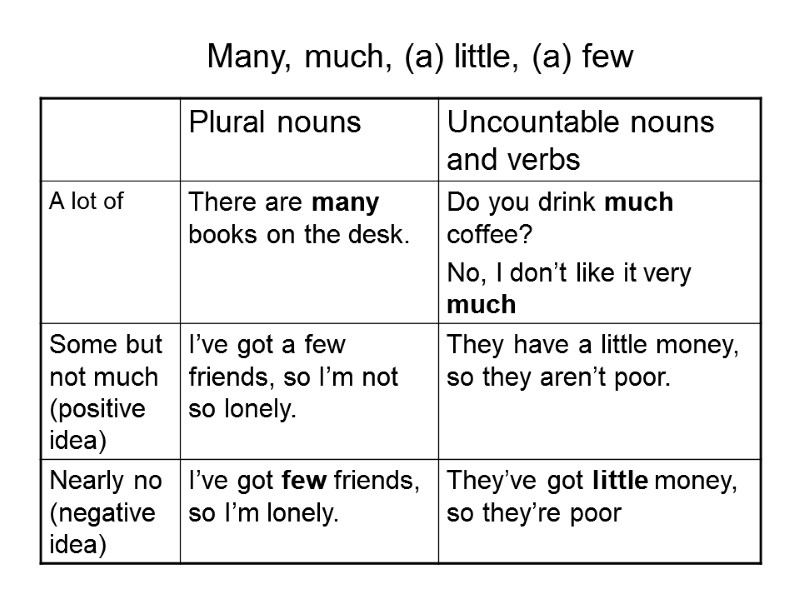
Many, much, (a) little, (a) few
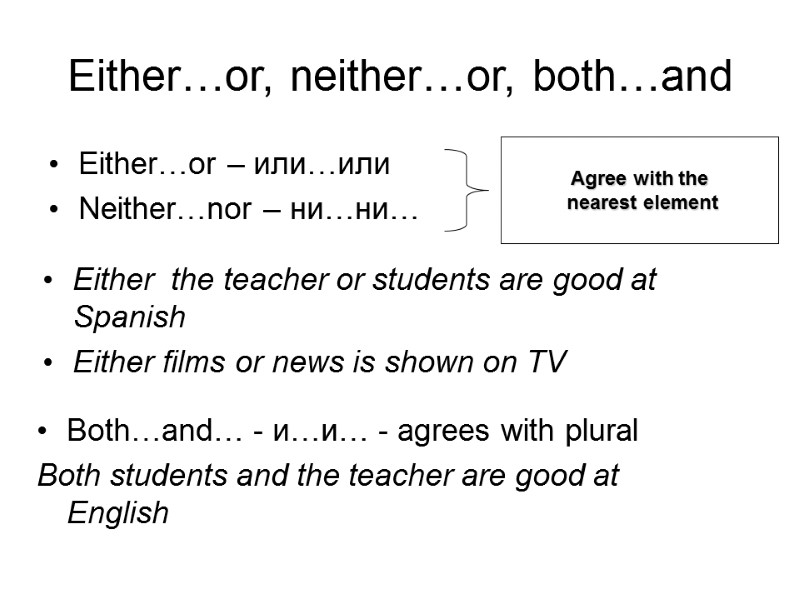
Either…or, neither…or, both…and Either…or – или…или Neither…nor – ни…ни… Agree with the nearest element Either the teacher or students are good at Spanish Either films or news is shown on TV Both…and… - и…и… - agrees with plural Both students and the teacher are good at English
11744-the_pronoun.ppt
- Количество слайдов: 13

